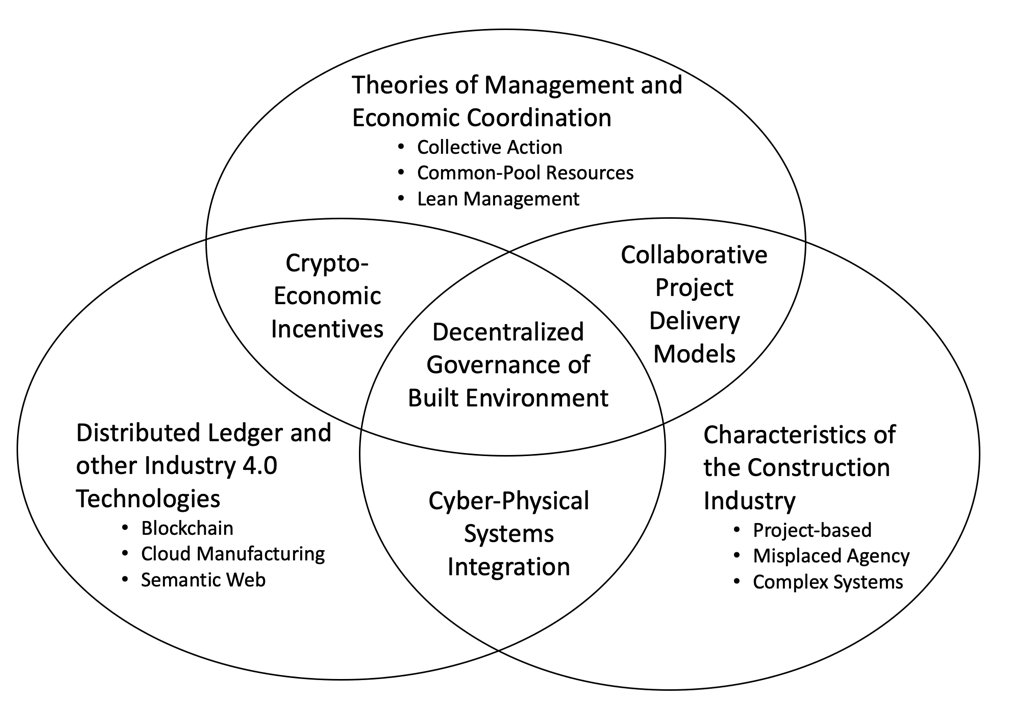Decentralized Governance of the Built Environment

Ongoing Projects
- CryptoEconomics for Construction
- Circular Future Cities
- Download Project no1s1: a self-owning house
- Decentralized Data Marketplaces
- Integrated Project Delivery on the Commons
- Spatio-Temporal Semantic Understanding of Construction Sites
The Chair of Innovative and Industrialized Construction studies decentralized governance for the built environment. Specifically, we investigate the appropriate socio-technical management strategies needed for the future design, construction, operation and ownership of assets in the built environment. As society approaches an era of distributed technological integration (e.g., Industry 4.0 and Web 3.0), the built environment will need to adapt.
Our research on decentralized systems and cryptoeconomic incentives demonstrates how distributed approaches to data management and incentive systems can be deployed for the construction industry. We have identified use-case categories for blockchain and developed a decision framework to help researchers get started with the right blockchain design. To understand the organizational implications of blockchain technologies, we have developed several proof-of-concepts using blockchain, BIM, and digital twins. These prototypes only reinforce the need for better understanding of organizational design, incentive systems, and management in an era of digitalization.
Our research also investigates decentralized approaches to collaborative project delivery models such as Integrated Project Delivery (IPD). IPD scholars have taken a practice-oriented approach to explain collaborative project delivery. However, there is lack of theorization regarding the conceptual foundations that underpin collaborative project governance. To address this, we draw upon scholarship from institutional theory, construction law, construction case studies, IPD governance, organizational theory, lean construction, and relational contracting to understand the institutionalization of IPD. We also propose an alternative theoretical conceptualization for collaborative project delivery models based on the governance of common-pool resource scenarios. This conceptual work has been extended with additional ethnographic and qualitative fieldwork.
Bringing together research on blockchain and collaborative project delivery models, we are now studying how decentralized autonomous organizations can coordinate projects and products in the built environment. Decentralized autonomous organizations are self-owning organizations governed by rules embedded in blockchain smart contracts. These coordination rules enable or exclude the input of participating actors into the distributed design or management of a project or physical space. For example, we have developed the first example of decentralized autonomous space with our prototype of a self-owning meditation pod and we are conceptually working on how IPD projects can be governed using a crypto-commons approach.